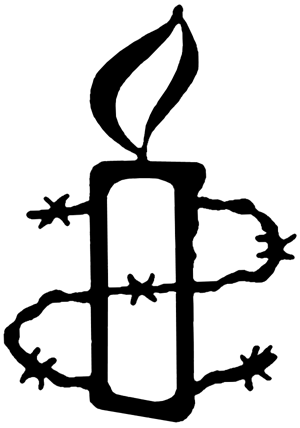Amnesty International UK director has issued a public apology after reports of racism within its organisation escalated this week.
Kate Allen has issued the statement following allegations of racism among staff against black and ethnic minority colleagues.
This includes accounts from ex-staffers in the media this week and reports of the findings from a report into racism globally within Amnesty International.
This report, commissioned after the Black Lives matter protests, included accounts of “overt racism” as well as examples where the “N word” was used by senior staff.
“We know that institutional racism exists in the UK and, like any other organisation, we aren't immune to this very real problem,” said Allen.
“We recognise that we and the International Secretariat have not done enough to ensure that our organisations are truly inclusive, where everyone receives the same level of respect and opportunity, is valued equally and is able to be heard.
“We are reckoning with the uncomfortable fact that we have not been good enough and from this, we understand that we must change to become better.”
She added that she was “deeply sorry to hear the accounts of racism from our former colleagues”.
“I want to apologise to anyone who has experienced harm and pain and felt that we have not effectively and properly addressed allegations of racism within the organisation.
“These are serious and challenging concerns and, although I cannot discuss individual cases, we take allegations of discrimination seriously and investigate them thoroughly in line with our policies and procedures.”
The report into racism within Amnesty International was published in October 2020.
'Bias, microaggressions and overt racism'
Based on responses from Amnesty International staff this found that “the participants of colour in the focus groups were unanimous in their agreement that they had experienced and observed numerous examples of bias, microaggressions and overt racism at Amnesty”.
“They were also likely to have observed systemic issues that they described as pervasive across the organisation,” the report also found.
It added: “Staff provided some specific examples of overtly racist language being used. Those included three examples of the use of the word ‘Paki’ and one of the ‘N word’ being used by senior staff.”
Also detailed is incidents of racism and discrimination in the UK.
“Several participants in European offices raised concerns about a lack of awareness and sensitivity within Amnesty’s culture towards those who observe common religious practices,” the report found.
“Examples included team socialising in London focused on visiting the pub without any alternatives and insensitivities to those who are fasting or require time away from their role to pray or celebrate important holidays.”
Black and ethnic minority workers also reported “stress of bearing the burden for advocating on behalf of people of colour generally, for example being singled out in meetings and asked to provide personal experiences”.
In addition, staff were “being ignored or dismissed repeatedly over email by colleagues in London”, the report said.
It added: “A common comment in the groups was to observe that they thought they were imagining it, but it happens repeatedly and only stops when another London or white colleague joins the email discussion.”
Allen said that action already being taken by Amnesty International UK has included creating governance structures with a greater focus on equity, diversity and inclusion.
A diversity and inclusion lead has been recruited and the charity is in the process of recruiting a racial justice lead.
“These roles will challenge the organisation, hold us accountable and build our capacity to become a more inclusive and anti-racist organisation,” said Allen.
“We have also convened a Diversity and Inclusion Advisory Group, bringing together our internal expertise across our staff and Boards.”
Other pledges include reviewing its grievances, recruitment and retention processes.
Her statement adds that the October 2020 report was commissioned by Amnesty’s International Secretariat and did not look specifically at Amnesty International UK.
“However, we recognise that we must also change and so have undertaken an extensive review of our structure and governance in relation to racism,” she added.
Latest News
-
Asylum charity 'devastated' after truck stolen
-
Cycling UK unveils brand refresh
-
Daniel Bausor: Are 'Charity Success Managers' the answer in 2025?
-
Hidden trauma and burnout crisis among fundraisers, research shows
-
Leeds Building Society invites charities to apply for a share of £150,000 anniversary funding
-
Sense International appoints new chief executive
Charity Times video Q&A: In conversation with Hilda Hayo, CEO of Dementia UK
Charity Times editor, Lauren Weymouth, is joined by Dementia UK CEO, Hilda Hayo to discuss why the charity receives such high workplace satisfaction results, what a positive working culture looks like and the importance of lived experience among staff. The pair talk about challenges facing the charity, the impact felt by the pandemic and how it's striving to overcome obstacles and continue to be a highly impactful organisation for anybody affected by dementia.
Charity Times Awards 2023
Mitigating risk and reducing claims

The cost-of-living crisis is impacting charities in a number of ways, including the risks they take. Endsleigh Insurance’s* senior risk management consultant Scott Crichton joins Charity Times to discuss the ramifications of prioritising certain types of risk over others, the financial implications risk can have if not managed properly, and tips for charities to help manage those risks.
* Coming soon… Howden, the new name for Endsleigh.
* Coming soon… Howden, the new name for Endsleigh.
Better Society

© 2021 Perspective Publishing Privacy & Cookies











Recent Stories